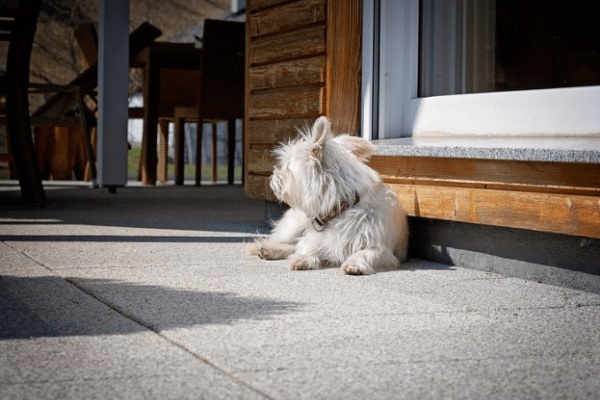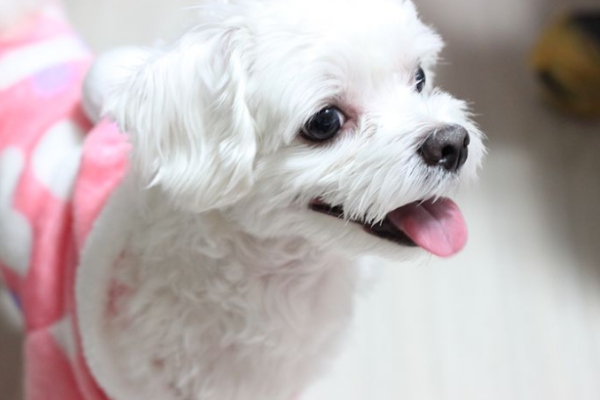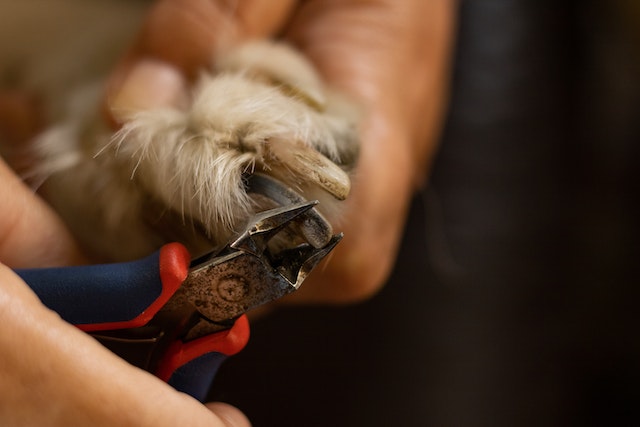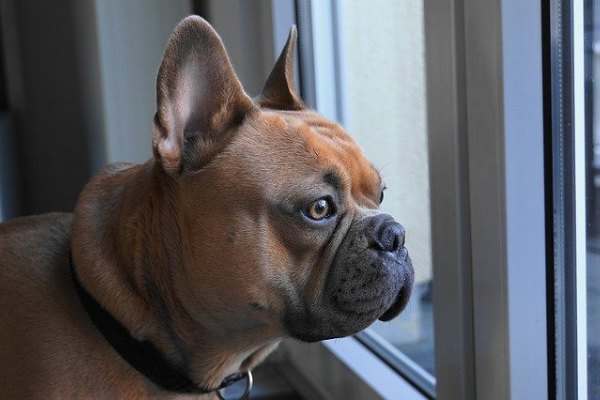Do corgis smell: 10 Reasons Why Corgis Smell & Tips

People who own corgis that smell always ask do corgis smell and that is exactly what we will be discussing in this post.
I will be discussing some of the most common reasons why corgis smell which can be a lack of care from owners.
We’ll also go through ways to keep corgis from stinking, as it’s usually your fault as their owner when they do.
Do corgis smell
Corgis don’t have a reputation for being stinky and are one of the cleanest dog breeds.
However, if they aren’t properly maintained, they can, like other dogs, start to smell bad.
Your corgi’s skin and coat will remain healthy and clear of odor-causing microorganisms with regular brushing and washing.
Traditionally, corgis don’t smell unless they have yeast infections, skin infections, ear infections, dental problems, unclean coats, and paws, or take too many baths.
Only when something is amiss or when they have never been groomed can corgis smell.
This implies that if you let your corgis play outside, make careful to pick up after them sometimes.
Once more, make sure to dry your corgis immediately if they become wet for any reason to prevent skin diseases that might cause them to smell.
Reasons why Corgis smell

Just like we have stated above only when something is amiss or when they have never been groomed can corgis smell.
The double coat of both Pembroke and Cardigan corgis is the same and sheds continuously all year long.
Therefore, none of the dogs has a more offensive odor than the other.
Let’s look at some common circumstances that can lead to your corgi smelling.
The following are some of the primary causes of corgi odor:
1. Skin conditions
You should speak with your veterinarian about any scars or strange scents on your corgi’s skin before they get severe.
If your home is damp or soggy, this encourages the proliferation of bacteria and yeast on the skin’s surface.
The toxins produced by these species irritate and inflame the skin, weakening its defenses against infection.
Ringworm and yeast infections are two skin disorders that can cause your corgi’s skin significant irritation.
Some of these bacteria may not directly create odor, but they can potentially stink by making your corgi skin dry.
2. Dental conditions
Dental issues are one of the most common causes of bad odors, especially in older corgis.
Bad breath is a result of dental plaque and tartar, which also applies to corgis.
Brushing your corgi’s teeth is just as crucial as brushing your own.
Cleaning or feeding corgis with raw, small, chewable bones are excellent when done under observation.
Consider taking your corgi to the doctor for a complete checkup and cleaning if you detect anything strange.
3. Ear conditions
If you pick up after your dog, a healthy corgi ear typically has fantastic protection against infections.
Your corgi may experience allergies or hormonal issues, which can quickly increase yeast and bacteria levels and produce a foul odor.
Without a question, corgi ear infections may leave a bad scent in their wake.
Ear infections are more common in Corgis with hair around their ears and those that are allowed to spend time outside amid dry grasses.
Remember that a variety of situations, including the following, can cause ear infections in the corgis:
- Excessive dampness
- Illnesses
- Over cleaning of the ear
- Allergies
- Mites
- Excessive hair
4. Washing with incorrect shampoo
By washing your corgi with the wrong shampoo, you run the danger of unnecessary itchiness and odor in your dog.
There are too many shampoo choices, and some of them are dangerous for corgis because of their makeup.
Don’t just walk into a pet shop and buy any shampoo you feel is good for your dog because you may end up creating more issues.
Before washing your dog with any shampoo, always consult your veterinarian since they may be allergic to some of the components.
5. Leaving your corgi wet always
Corgis are prone to water or liquid retention because of their short hair, especially after washing them.
By failing to completely dry the water or liquid, they run the danger of promoting the growth of microbes on their skin.
The yeast and bacteria that are found in a dog’s skin and fur naturally produce this characteristic odor.
The moderate stench of wet corgi is made more overpowering by the water’s interaction with the yeast and bacteria.
6. Not brushing your corgi at all
You’ll be astonished at how much fresher your dog smells after a brief but thorough bath or brushing.
Between grooming treatments, brushing the dog will help to remove any unpleasant smells.
Dirt, dried saliva, dead skin cells, and other debris will be removed from the dog’s coat by brushing his hair.
Your corgi needs thorough grooming every two to four weeks, just like any other dog; washing is not essential.
When you take your dog to the groomer, both his ears and body will be properly cleaned.
Your corgi will smell bad if you don’t give them regular grooming.
7. Dirty coat
When you’re not looking, your corgi could crawl through bushes and roll in nasty things that could become caught on his fur.
It swims in nearby polluted water or runs along dirty walls when it goes outside to play.
Your corgi’s body may contain unclean foreign objects or substances that give off a foul odor.
Due to the fact that corgi hair quickly absorbs odors, your corgi can have that terrible stench all over your corgi’s body.
As a consequence, you’ll probably just need to wipe your corgi down with water once you’re inside.
Give your pet’s coat a good brushing to remove any dirt if she is already clean.
8. Dirty paws
Yeast infections can affect corgi’s skin and paws. The paws, which their owners seldom ever clean, are where it is most frequently discovered.
Your corgi may have a yeast infection or dirty paws if they smell.
Since Corgis have sweat glands on their paws as well, they will start to perspire if they become overheated or exercise.
The most evident is that every time you go for a walk, your corgi could step in the dirt, rotting trash, or even animal waste.
This is perfectly typical and should not be mistaken for the cheesy odor that regularly comes from their paws.
9. Poor-quality food
Poor-quality food might give your corgi gas, indigestion, and even diarrhea, which can make your pup smell.
These meals usually contain a lot of fillers in their preparation.
Instead, give your corgi wholesome, high-quality foods that will improve his digestion.
A significant change in food may also upset the person’s stomach and cause flatulence problems.
Depending on the advice of your veterinarian, it is preferable to adopt the new diet if it creates an allergic reaction.
10. Excessive baths or absence of baths
The issue is that regular bathing of your corgi might cause the shampoo or cleaning agents to remove the natural oils from its skin.
If she has too much of these oils in her coat, it will get oily, irritate her skin, and eventually stink.
Her coat is kept clean, healthy, lustrous, and odor-free by its natural oils.
In response, her body makes an exceptionally large amount of natural oil.
Contrary to popular belief, more washing will only make her smell over time.
Only four to seven baths per year are necessary for corgis.
How to prevent corgis from smelling
Some main techniques for avoiding corgis from smelling include the ones listed below:
- Give a warm bath to your corgi every 8 to 12 weeks.
- Regular brushing will also lessen odor and shedding in your corgi.
- A corgi should never be left in water without being air dried.
- Take care to properly wipe your corgi’s paws after each walk.
- Regularly check your corgi’s ear for any signs of an infection.
- Clean up the areas where your corgi likes to unwind.
- Give your corgi a clean, machine-washable dog bed.
- Only wash your corgi shampoos that are acceptable.
- Only use dog wipes on your corgi in an emergency.
- Always inspect your corgi’s ears for mites.
- Keep your corgi coats well moisturized.
- Brush your corgi’s teeth frequently.
Recommended post: 9 Hints To Corgi Shedding Control & More.
How to get rid of the corgi smell
Let’s assume you couldn’t prevent your corgi from smelling, how then do you get rid of the smell?
Let’s summarize…
Practice grooming at least twice in 3 days to get rid of entrapped dirt and loose fur after a month of weekly washes.
This will help your dog smell better by removing any fur that is frequently covered in debris.
Start by giving your dog thorough baths that cover every inch of his body.
Pay attention to the ears, paws, legs, underbelly, and nails.
All of these places collect dirt over time, which can make the region smell bad.
Use a dog shampoo that is natural or organic and has odor-neutralizing qualities. And ought to have veterinary approval.
When you take your dog for vigorous activity or into unclean areas, be sure to spot and clean the area.
Clean your corgi as soon as you see dirt on it. Keep it off the coat, so it doesn’t smell, and the fur doesn’t matte.
To make it easier for you to understand let me put it in a list format.
Here is how to get rid of corgi odor:
- Find out where the odor is coming from
- Spot clean the area the odor is coming from.
- Pay attention to the ears, paws, legs, underbelly, and nails.
- Use a vet-approved shampoo to bathe your corgi, then air dry.
- Check for any infection and contact your vet if any.
- Use an odor-neutralizing product approved by a vet in spot cleaning.
With the information provided on this page, I strongly hope your concerns about: do corgis smell were addressed!






![9 Signs of Shih Tzu Separation Anxiety [Causes & Tips] Shih Tzu Separation Anxiety](https://petcreeks.com/wp-content/uploads/2023/04/Shih-Tzu-Separation-Anxiety-768x555.jpg)